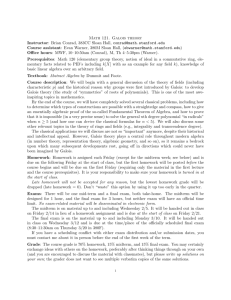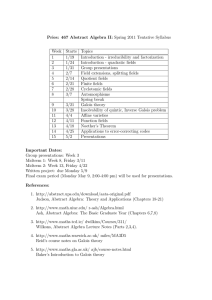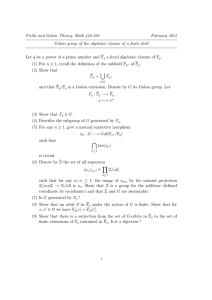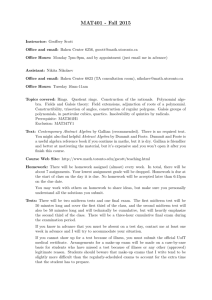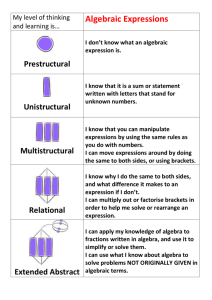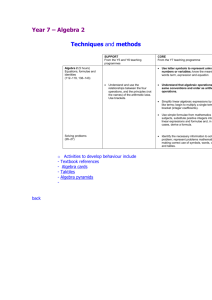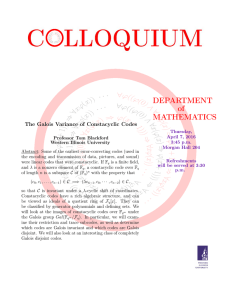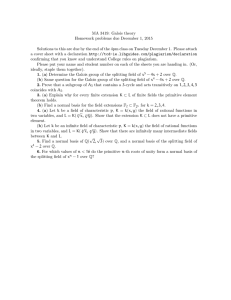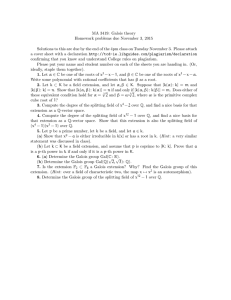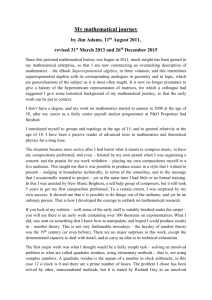Math 594. Algebra II Instructor: Brian Conrad Office: 2856 East Hall
advertisement
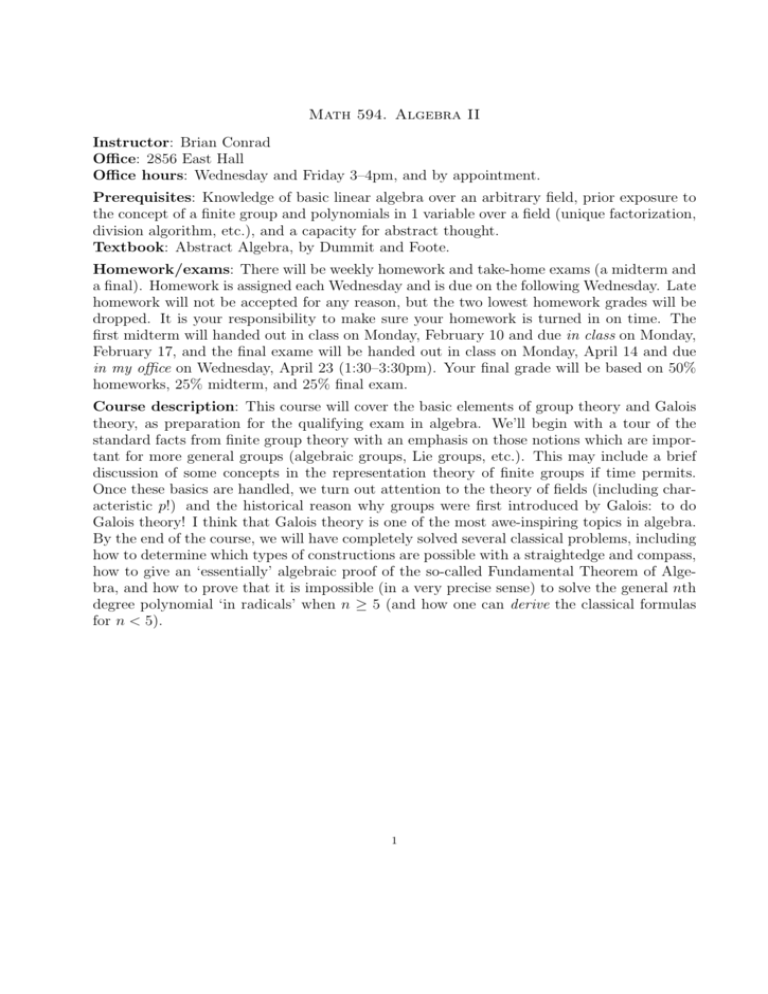
Math 594. Algebra II Instructor: Brian Conrad Office: 2856 East Hall Office hours: Wednesday and Friday 3–4pm, and by appointment. Prerequisites: Knowledge of basic linear algebra over an arbitrary field, prior exposure to the concept of a finite group and polynomials in 1 variable over a field (unique factorization, division algorithm, etc.), and a capacity for abstract thought. Textbook: Abstract Algebra, by Dummit and Foote. Homework/exams: There will be weekly homework and take-home exams (a midterm and a final). Homework is assigned each Wednesday and is due on the following Wednesday. Late homework will not be accepted for any reason, but the two lowest homework grades will be dropped. It is your responsibility to make sure your homework is turned in on time. The first midterm will handed out in class on Monday, February 10 and due in class on Monday, February 17, and the final exame will be handed out in class on Monday, April 14 and due in my office on Wednesday, April 23 (1:30–3:30pm). Your final grade will be based on 50% homeworks, 25% midterm, and 25% final exam. Course description: This course will cover the basic elements of group theory and Galois theory, as preparation for the qualifying exam in algebra. We’ll begin with a tour of the standard facts from finite group theory with an emphasis on those notions which are important for more general groups (algebraic groups, Lie groups, etc.). This may include a brief discussion of some concepts in the representation theory of finite groups if time permits. Once these basics are handled, we turn out attention to the theory of fields (including characteristic p!) and the historical reason why groups were first introduced by Galois: to do Galois theory! I think that Galois theory is one of the most awe-inspiring topics in algebra. By the end of the course, we will have completely solved several classical problems, including how to determine which types of constructions are possible with a straightedge and compass, how to give an ‘essentially’ algebraic proof of the so-called Fundamental Theorem of Algebra, and how to prove that it is impossible (in a very precise sense) to solve the general nth degree polynomial ‘in radicals’ when n ≥ 5 (and how one can derive the classical formulas for n < 5). 1
